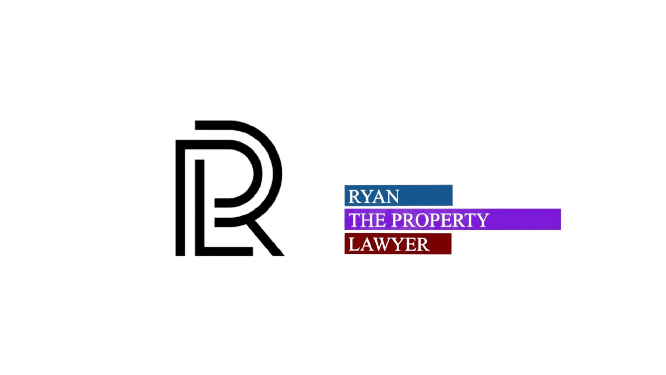The Legalities of Real Estate Wholesaling have grown in popularity as a means of making money in the real estate market without having to make an initial commitment in the form of a property purchase. Yet, in order to comply with rules and limit risks, real estate wholesalers must be aware of the laws that govern this activity. This article will discuss the legal elements of real estate wholesaling, including the most important factors to think about, the regulations that must be followed, and the precautions that may be taken to reduce risk.
The definition of real estate wholesaling.
In real estate wholesaling, an individual (the wholesaler) negotiates a purchase agreement with a property seller and then resells that agreement to another party (the “retailer”) for a profit. A wholesaler acts as a go-between in a transaction but does not take legal title to the goods being sold. The gain results from the disparity between the agreed-upon buying price and the designated selling price.
Key Players in Real Estate Wholesaling
There are typically three major players in a real estate wholesale deal:
- The Wholesaler: The individual who identifies potential properties, negotiates contracts with sellers, and assigns those contracts to buyers for a fee.
- The Seller: The property owner who is looking to sell their property quickly and may be willing to accept a lower price in exchange for a fast transaction.
- The Buyer: The investor or end buyer who is interested in purchasing the property from the wholesaler.
The Importance of Compliance in the Real Estate Wholesaling Industry
Aspects of Lawfulness and Accreditation
One of the primary compliance considerations in real estate wholesaling is understanding the licensing and legal requirements imposed by the state or jurisdiction in which the wholesaling activities take place. A real estate license or affiliation with a licensed broker may be necessary for wholesalers in some jurisdictions. Wholesalers that don’t investigate and abide by the laws of their jurisdiction risk facing legal repercussions.
Transparency and Information Release
At every stage of a deal, wholesalers must be completely forthright and forthcoming with all relevant information. If they are operating as a wholesaler, they must make it known to the sellers that they intend to transfer the contract to a buyer. Finally, distributors should be forthright and truthful about the property’s condition, problems, and faults. Conflicts and legal problems may be reduced by keeping all parties informed and making sure they fully grasp the terms of the transaction.
Combating Fraud and Other Tricks
Wholesalers must not engage in any activities that are fraudulent or misleading, since they might have negative consequences for both customers and sellers. There may be legal repercussions for making false or misleading comments regarding the property’s worth or prospects. In order to stay in compliance and develop a solid reputation, wholesalers should always act ethically and professionally.
Observance of Commitments Under Contract
Contracts between sellers and purchasers must be reviewed and followed closely by real estate wholesalers. Failure to meet contractual obligations, such as timely performance, accurate disclosures, or proper assignment procedures, can result in breach of contract claims and potential legal disputes. If a wholesaler wants to be sure their contracts are legal and binding, they should consult an attorney.
Risk Avoidance Techniques for the Real Estate Wholesaling Industry
Verification and Appraisal of Premises
Real estate wholesalers can reduce their exposure to potential problems by performing careful research and assessments of available properties. Wholesalers should investigate the property thoroughly to determine its fair market worth, current condition, title history, and the existence of any legal or financial obligations. This entails checking ownership documents and zoning laws, as well as inspecting properties and examining related records. To further assure conformity with local rules and regulations, wholesalers should consult with real estate attorneys and appraisers. By taking these measures, wholesalers can minimize the risk of legal disputes, financial losses, and reputational damage.
Adherence to Marketing and Advertising Laws
Legal requirements for marketing and advertising also apply to real estate distributors. Wholesalers should research their local regulations and policies concerning the advertising of real estate deals. They need to make sure that the information shown in their ads is correct and doesn’t provide the wrong impression to potential customers. Making false statements or employing deceptive practices can have serious legal ramifications and should be avoided at all costs.
Talking to Lawyers About It
Real estate wholesalers would do well to consult with seasoned real estate lawyers familiar with the nuances of the industry’s legal landscape. Lawyers may help wholesalers stay within the law by reviewing contracts and agreements, providing guidance on how to comply, and spotting red flags. Wholesalers can benefit from consulting with legal specialists since doing so helps them recognize hazards, develop practical plans to mitigate such risks, and guarantee compliance with all relevant rules.
Conclusion
Although wholesaling real estate may be a successful financial strategy, it is not without its fair share of legal problems and hazards. Compliance, transparency, and ethical business practices are essential for wholesalers to reduce exposure to risk and preserve their standing in the market. Understanding licensing requirements, adhering to contractual obligations, and conducting thorough due diligence are key aspects of compliance. The legal complexities of wholesaling real estate can be daunting, but with the help of legal experts, wholesalers can better protect themselves and their clients.
Keep in mind that this blog post is for purely educational reasons and not intended to give any sort of legal counsel. In order to get guidance tailored to their needs and the laws in their area, real estate wholesalers should speak with attorneys. Responsible and ethical real estate wholesaling is possible if wholesalers keep themselves informed, follow the law, and take precautions.






